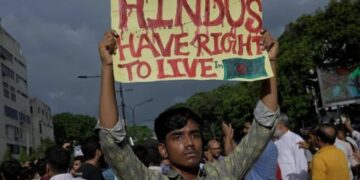In a landmark decision today, the Supreme Court affirmed the legality of sub-classification within Scheduled Castes (SCs) and Scheduled Tribes (STs), allowing for separate quotas for the more marginalised groups among these communities. The verdict was delivered by a 6:1 majority, with Justice Bela Trivedi dissenting.
The Constitution Bench, chaired by Chief Justice of India (CJI) DY Chandrachud, overturned a 2005 ruling which had previously barred State governments from creating sub-categories within SCs for the purposes of reservation.
CJI Chandrachud asserted that such sub-classifications do not contravene the principle of equality as outlined in Article 14 of the Constitution. He explained that the systemic discrimination faced by SC/ST members often hinders their advancement, making a case for the necessity of differentiated quotas.
“Sub-classification does not violate the principle of equality enshrined under Article 14 of the Constitution,” the Court declared.
However, the Supreme Court stipulated that any sub-classification within SCs and STs must be supported by quantifiable and demonstrable data from the states.
“States cannot act on whims or political expediency; their decisions are subject to judicial review,” CJI Chandrachud warned.
Justice BR Gavai, who concurred with the majority opinion, stressed that it is the State’s responsibility to provide preferential treatment to the more backward segments of these communities. He noted that only a small fraction of SC/ST individuals currently benefit from reservations, while some categories within SCs and STs have endured greater oppression for centuries.
Justice Gavai further asserted that states must develop policies to identify and address the ‘creamy layer’ among SCs and STs before implementing sub-classification.
“This is the only way to achieve genuine equality,” he stated. Justice Vikram Nath supported this view, affirming that the creamy layer principle applicable to Other Backward Classes (OBCs) should also be applied to SCs and STs.

















